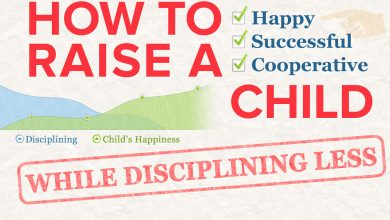
Tips in this episode help both parents and grandparents
The relationship between grandparent and grandchild can be so fulfilling and important. But without boundaries and priorities in the proper place, interaction between the generations can become painful or difficult.
In this episode, Carol and Anne clarify healthy boundaries, and what you can do to relieve tension—whether you’re a parent or grandparent yourself.
This week’s Parenting Practice
If you’re a grandparent, get clearer on your role, set boundaries, and play that role well. Don’t meddle in what’s not your business. If you’re the parent and there are issues with a grandparent, talk to your spouse and then make a plan to approach the grandparent to move this in a positive direction.
Transcript of podcast episode
Carol: I get to indulge my grandchildren.
Anne: Is it really that great? They say being a grandparent is like the best, the icing on the cake of being a parent.
Carol: Welcome to The Child Whisperer Podcast. I’m your host, Carol Tuttle, author of the bestselling parenting book, “The Child Whisperer.” I’m with my co-host, Anne Tuttle Brown.
Anne: “I’m a Type 4 grandmother with a seven-year-old grandson who is a Type 3. I really lost my temper the other day and yelled at him about how super indulged he was by his parents stating that I wouldn’t tolerate this behavior. We were at the end of a three-day visit with lots of activities. We were both tired, but I feel terrible about it. How can I avoid this the next time?”
Carol: I am a grandmother. I have 10 grandchildren and I think it’s appropriate that she does feel terrible about that. So that’s an appropriate emotional response to that choice. So if it were me and I felt terrible about a choice I’d made and how I behaved towards one of my grandchildren, especially if they were seven years or older, I would apologize. I’d make it a point to apologize to them.
Anne: Would you feel that you need to bring it up with the parents in case the child would say, “Hey, Grandma yelled at me and made me feel sad.”
Carol: “And said you were overindulging me.” I think I would, too, just because you don’t know if that’s going to get reported back to the parents. And here’s my number one role as a grandparent, my opportunity is to create a great grandparent-grandchild relationship. I’m not the parent. I’m done. I’m not that.
Anne: Halleluiah. I hear all this…
Carol: I get to indulge my grandkids.
Anne: Is it really that great? They say being a grandparent is like the best, the icing on the cake of being a parent.
Carol: I think yeah.
Anne: You’re enjoying that role?
Carol: It’s great because they really look forward to the experience they have with us and more than that is, it’s not my business. The parent-child relationship is really not my business and to meddle. If you’re the grandparent that thinks you have to counter something a parent is doing that you disagree with or make up the difference…Now, in the case of a really highly dysfunctional parent, you’re having to foster your own grandchildren, that’s a whole another scenario where you’ve had to step in because we are dealing with a very high level of dysfunction in a parent that you’re now parenting a grandchild. I’m not talking about that. I’m talking about, I think they let their children get away with too much of this.
Anne: They stay up too late. They don’t eat healthy enough.
Carol: They’re not disciplining them correctly and I need to make sure I make up the difference now and give them this different experience. It’s like, no, that’s not my business. It’s not my role, nor am I interested because I want to have a really positive experience with my grandchildren.
Anne: So, you’re focused on just a relationship with your grandkids, independent of your children and how they parent.
Carol: Yeah, and I can’t separate that entirely because we’re all a family, yet, I have a unique relationship with each grandchild. It’s different. I have different kinds of conversations with them because I know their Energy Types. I understand their natures. What we do together looks very different, just my approach with them is and really catering to who they are, knowing their Energy Type.
Anne: Have there been times as a grandparent that you have held your tongue or rolled your eyes at how your grandkids are being parented?
Carol: Sure.
Anne: And how do you move through that?
Carol: I just figured, hey, they’re all learning. This is a long-term experience. You can’t isolate. I have great children with great spouses that are all amazing parents who are all very dedicated. So no, it’s rare. It’s not like it’s anything that you go, this is affecting my grandchild’s moral development, you know, or they’re just going to be an uncivil human being.
Anne: You would have taken a different approach in a certain scenario. And you’re like, okay, well yeah, you have to just throw it back to the parent and be like, that’s what you’re doing.
Carol: Yeah. They’re doing the best they know how and to judge a parent to their child, that’s vulnerability, man. You want to really start to break down those relationships. You know, I think that’s what she feels terrible about is like she shamed the parents to their child.
Anne: Lost her temper and then shamed the parents in front of the child.
Carol: Yes. And that somehow she was superior and was going to make up the difference for this child, and so I think understanding your role in having a boundary around it, say I’m not touching that, I’m going to stay within my role and the boundary I’ve set as a grandparent does not involve countering or making up the difference for any opinion I may have of how the parents are parenting this child. My opportunity is to create a healthy, strong bond with my own grandchildren and to be a person of influence for the good in their life.
Anne: So let’s say you’re on the flip side and you are the parent and the grandparent is constantly judging you about how your parenting, how do you resolve that issue?
Carol: Or they’re correcting your child in front of you or they’re stepping in and disciplining when you’re trying to manage a situation on your terms in your way and the grandparent gets involved.
Anne: You’re getting a lot of feedback from the grandparents.
Carol: Yeah. Or they’re just meddling in things. It’s really you’re fed up with it. You just want your children to have a happy experience with their grandparent. Maybe they’re using derogatory language towards your child. There’s so many scenarios where grandparents just aren’t being mindful and they’re damaging those relationships rather than nurturing them. I think you need to talk to them about it. How would you talk to me if I was doing something?
Anne: Well, why don’t you tell me how I talked to you then I do it? I need some moral support. I think I’d first have a conversation with my husband and see if…
Carol: See if you both agree.
Anne: Yeah. And get really clear before I take it to the person. I think, you know, this is a relationship that you want to foster in most cases. You know, you want to have a healthy, loving relationship with your parents and so to be reactive or to call it, you know, you want long-term results from this conversation and it could be a hard conversation to have because you’re pointing out behavior that’s not okay with you and you’re asking for correction. And so I would get really clear on what’s not working and then what you would like to see and then come at it with, you know, like why do you want that change? You want to have a positive relationship with your parents. You want your kids to have a positive relationship with their grandparents and so you’re asking for some changes. You know, I really appreciate your support and your love for my kids, but I don’t like, da, da, da, da, da. So to coach us child whisperer, I don’t know what you would say.
Carol: I like what you’ve said though, that you may actually have an agreement as parents because it may involve your spouse’s—
Anne: An in-law.
Carol: Yeah, an in-law. And so you’re both coming to the clarity on that and be honest about it, it’s awkward, it’s uncomfortable. It’s okay to say that. The thing is, if you withhold it, you’re either going to repress it and get angry and that anger is going to be repressed emotion that you have to account for on a physical level that’s not supportive to your own health or you’re going to just spout it out at some point and get upset and that’s not proactive. I would say, “What I want is, da, da, da, da, da. What I don’t want is…” Those two setup phrases are very supportive when you want to make a change in a relationship. “What I want is, da, da, da, da, da, what I don’t is, da, da, da, da, da.”
Anne: And even start by writing that out. You know, before you have that conversation, get really clear on that for yourself.
Carol: You know what I want is, for you to have a really wonderful relationship with our children where they really love spending time with you and they learn from you because you have so many great things to share and support them in. What I don’t want is you stepping in and disciplining so and so when we’re having it out. I want you to leave that between me and my child, so really those two phrases get a lot of clarity, what I want, what I don’t want.
Anne: And maybe even starting with, “What’s one thing that you don’t want?” And going from there rather than…like a big long list and, “This bothers me and this bothered, and remember the last time and you did that and this and this.” Maybe just narrowing it down. If it is reoccurring in lots of areas, what’s really the one thing that you’re asking for? And be really clear and direct on that and that will open the space and probably shift the other things too.
Carol: What’s happening, if you’re not being direct and clear and honest about this and working…using healthy communication skills to work things out, you’re going to be griping about it and saying things about your children’s grandparents that they’re probably going to hear, and it starts to paint an image of their grandparents of whether they see them favorably or unfavorably.
The parenting practice for this week is, if you’re a grandparent, get more clear on your role, set some boundaries, and play that role well, and don’t meddle in what’s not your business. If you’re the parent and there’s issues with the grandparent, take that next step, talk to your spouse and then make a plan on how you’re going to approach the grandparent to move this in a different positive direction.
Thanks for listening. For more support, go to thechildwhisperer.com, where can purchase the book, subscribe to our weekly parenting practice email and find a transcription and audio of the Child Whisperer Podcast.
Anne: If you’re listening on iTunes, thank you for leaving a review. If you have a parenting question, please send it to [email protected].



